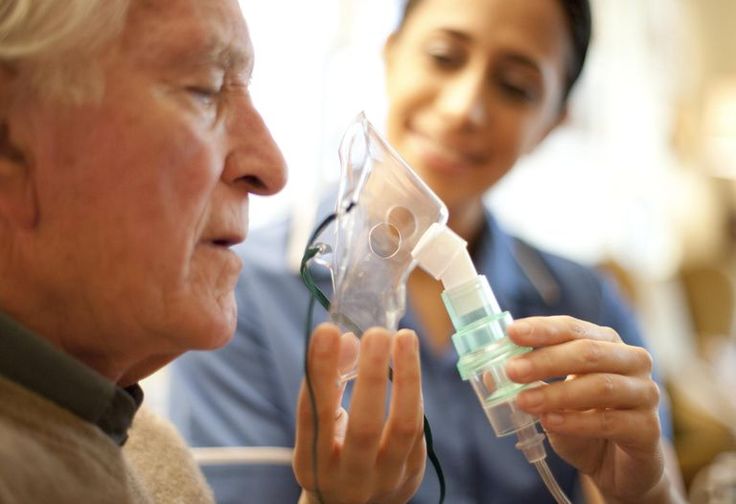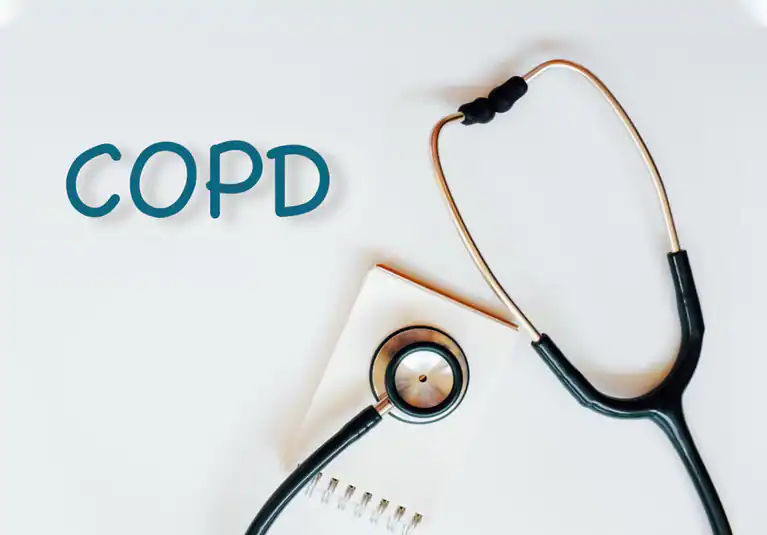Oxygen Therapy for COPD
Breathing Easily: Oxygen Treatment for Hypoxemia in COPD Patients
Breathing becomes challenging when you have chronic obstructive pulmonary disease (COPD), a progressive lung disease. Hypoxemia, a condition in which your blood oxygen levels fall below healthy values, is one of the main consequences of COPD. For COPD patients who have hypoxemia, oxygen treatment can be a life-changing strategy that improves both their symptoms and general quality of life. Let’s examine this important therapy choice in more detail.
Table of Contents

Understanding COPD-Related Hypoxemia
Oxygen Therapy for COPD
The bloodstream receives oxygen from inhaled air with efficiency in healthy lungs. Damage to the lungs and airways, however, prevents this process in COPD. This results in hypoxemia, which manifests as weariness, disorientation, and dyspnea. Severe hypoxemia may even be fatal if treatment is not received.
Therapy with Oxygen: A Breath of Fresh Air
Oxygen Therapy for COPD
The goal of oxygen therapy is to supplement your body’s oxygen supply using a variety of techniques. By raising blood oxygen levels, you can reduce symptoms and enhance your quality of life.
For COPD patients, there are two primary forms of oxygen therapy:
Oxygen Therapy for COPD
- Long-Term Oxygen Therapy (LTOT): Patients with severe, persistent hypoxemia are prescribed long-term oxygen therapy, or LTOT. LTOT entails spending at least 15–18 hours a day at home with an oxygen concentrator, a machine that removes oxygen from the ambient air. For more mobility, portable oxygen concentrators are also offered.
- Ambulatory Oxygen Therapy (AOT): Ambulatory oxygen therapy, or AOT, is used for individuals who only get hypoxic when they exert themselves or engage in certain activities. AOT usually consists of portable concentrators or compressed oxygen tanks used during exertion or periods of increased respiratory difficulty.
Advantages of COPD Oxygen Therapy
Oxygen Therapy for COPD
Research has demonstrated the obvious advantages of oxygen therapy for hypoxemia in COPD patients, such as:
- Diminished Symptoms: Oxygen treatment successfully reduces exhaustion, dyspnea, and enhances the quality of sleep.
- Better Exercise Tolerance: Higher oxygen levels facilitate greater exercise capacity and engagement in everyday activities.
- Decreased Hospitalizations: The use of oxygen therapy during COPD exacerbations can help avoid problems and lessen the requirement for hospital admissions.
- Extended Lifespan: Research indicates that LTOT may raise survival rates for those suffering from severe hypoxemia.
Thinking About Oxygen Therapy: Who Requires It?
Oxygen Therapy for COPD
Not every patient with COPD needs oxygen therapy. Usually, doctors determine whether oxygen therapy is necessary depending on:
- Arterial Blood Gas (ABG) Test: The arterial blood gas (ABG) test determines the amounts of carbon dioxide and oxygen in the blood. The requirement for oxygen therapy is frequently indicated by a resting oxygen level below 88 mmHg (millimeters of mercury).
- Symptoms: Weariness, breathing difficulties at night, and severe dyspnea can all be reliable markers.
- General Well-Being: Your doctor will take into account both co-existing conditions and your general health.
Managing Oxygen Therapy: Success Strategies
Oxygen Therapy for COPD
In the event that you need oxygen therapy, the following will help your travel go more smoothly:
- Observe what the doctor instructs: Use oxygen as directed by your physician for best outcomes.
- Maintain Equipment: To guarantee the operation of your oxygen delivery system, give it a thorough cleaning and maintenance.
- Travel Planning: Talk to your doctor about your travel schedule and make sure you have enough oxygen on hand for the trip.
- Safety in fire: Oxygen can catch fire. When utilizing oxygen, keep a safe distance from open flames and be aware of any fire hazards.
- Lifestyle Adjustments: Giving up smoking and leading a healthy lifestyle can greatly enhance results.
Oxygen Therapy for COPD
Although oxygen therapy can be an effective strategy for managing symptoms and enhancing quality of life, living with COPD can be difficult. You can breathe more easily and have a fuller life by carefully collaborating with your physician and being aware of the advantages and drawbacks of oxygen therapy.





Recent Comments